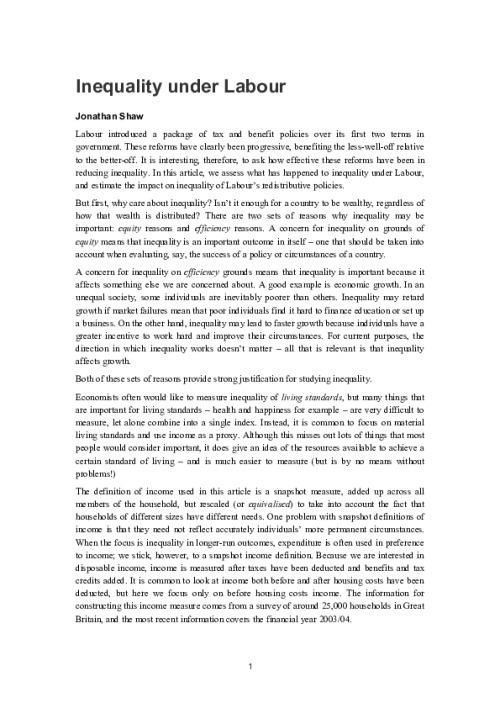Labour introduced a package of tax and benefit policies over its first two terms in government. These reforms have clearly been progressive, benefiting the less-well-off relative to the better-off. It is interesting, therefore, to ask how effective these reforms have been in reducing inequality. In this article, we assess what has happened to inequality under Labour, and estimate the impact on inequality of Labour's redistributive policies.
But first, why care about inequality? Isn't it enough for a country to be wealthy, regardless of how that wealth is distributed? There are two sets of reasons why inequality may be important: equity reasons and efficiency reasons. A concern for inequality on grounds of equity means that inequality is an important outcome in itself ֠one that should be taken into account when evaluating, say, the success of a policy or circumstances of a country.
A concern for inequality on efficiency grounds means that inequality is important because it affects something else we are concerned about. A good example is economic growth. In an unequal society, some individuals are inevitably poorer than others. Inequality may retard growth if market failures mean that poor individuals find it hard to finance education or set up a business. On the other hand, inequality may lead to faster growth because individuals have a greater incentive to work hard and improve their circumstances. For current purposes, the direction in which inequality works doesnҴ matter ֠all that is relevant is that inequality affects growth.
Both of these sets of reasons provide strong justification for studying inequality.









